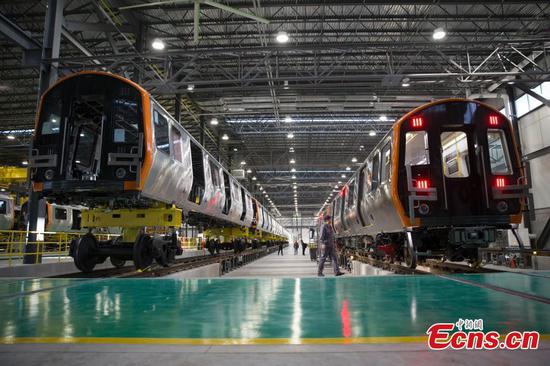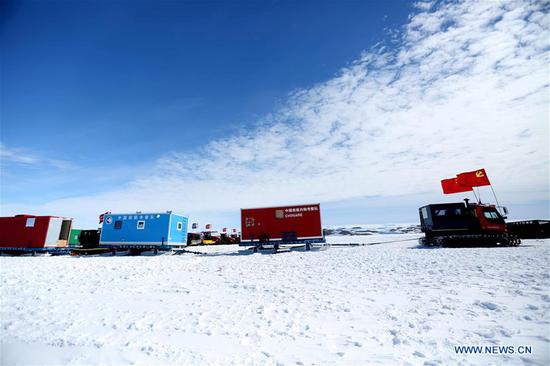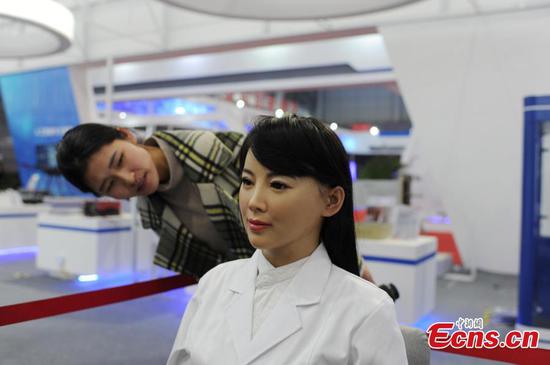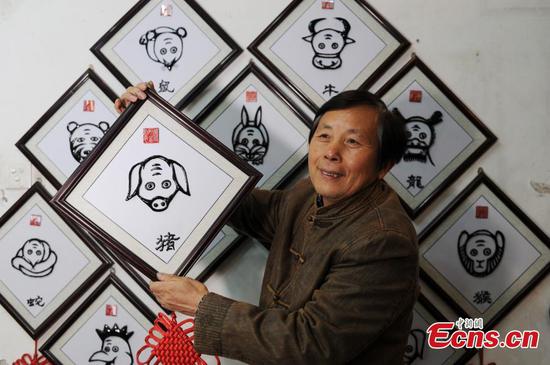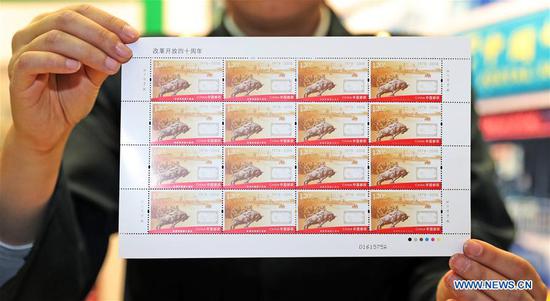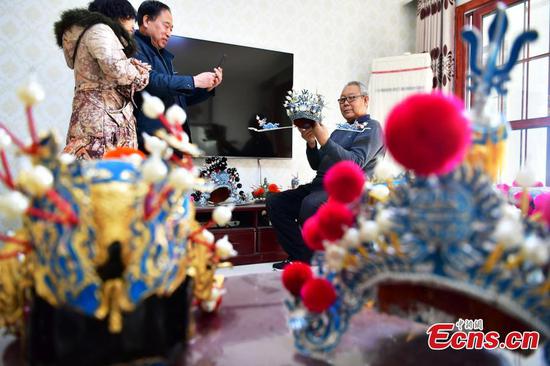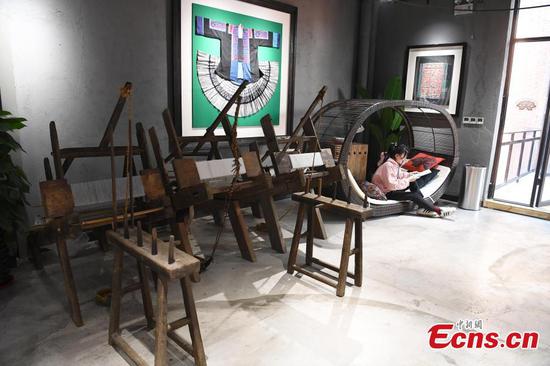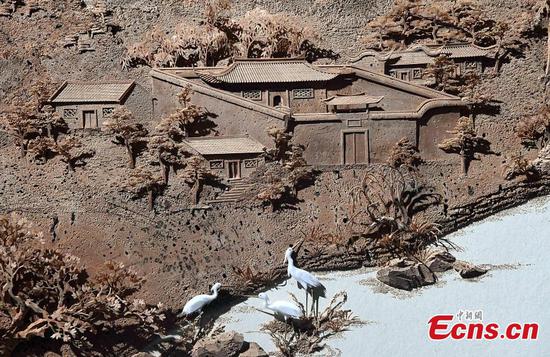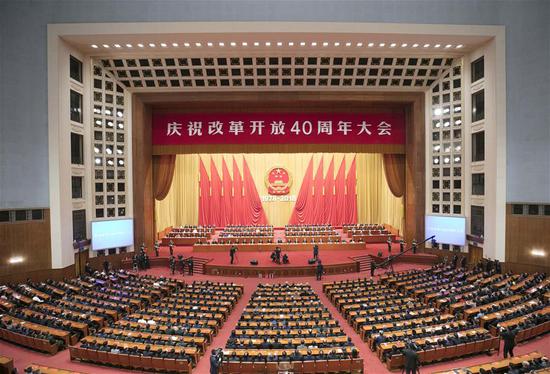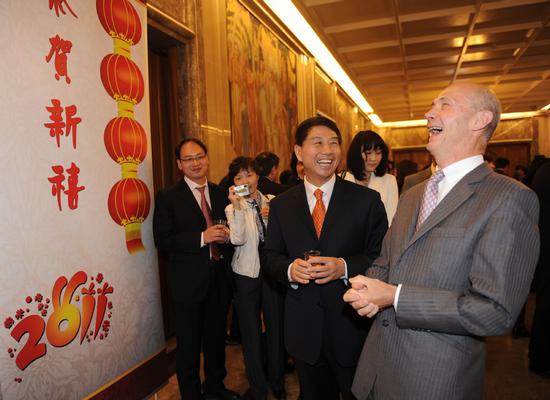
Lamy talks with Yi Xiaozhun (center), China's permanent representative to the World Trade Organization, at the WTO headquarters in Geneva, Switzerland, on Feb 11, 2011. (Photo/Xinhua)
In addition to taking part in the negotiations for China's entry into the WTO, Lamy served as the organization's director-general from 2005 to 2013.
The WTO and China now face a number of challenges, with United States President Donald Trump bypassing the organization's rules-based framework by imposing tariffs on China and other countries.
"We all know that his tariffs are not WTO compliant," Lamy said. "There is uncertainty on whether Trump is after improving the trade regime or whether he is about getting rid of the trade regime. If he's about getting rid of the WTO and about removing multilateralism and moving to bilateralism, then I am quite convinced the European Union, Japan and China will not play his game."
Lamy is a fervent believer in preserving the rules-based order for all.
"This is why plan A is to keep everyone within the tent because there is a common interest in subscribing to this collective insurance policy against protectionism," he said. "If the U.S. believe they can do without a collective insurance policy, then the others will have to move to plan B, which is to look at how a system without the U.S. could work."
He said it is not inconceivable that the WTO could operate without the world's largest economy.
"For the moment, it is the big economy in the system, but it depends on whether you believe at the end of the day that having a collective system, a multilateral cooperation system is the right way to go. I think the EU, Japan, India, China and Africa believe this is so," he said.
Lamy also said that the U.S. side's claims that its trade deficit with China is depriving American workers of jobs does not hold water.
"If it is a question of bringing back jobs to the U.S., it is already near full employment, so it must not be that relevant. It doesn't make sense. The U.S. have had a trade deficit for a very long time, and I think most economies on this planet would agree that this has nothing to do with trade," he said.
"The U.S. have a trade deficit because U.S. consumers consume more and save less than the rest of the planet. And as long as the U.S. benefit from this formidable privilege of having the dollar, they don't have a problem financing the deficit. If they had a problem financing the deficit, it might be an issue. It is not an issue."
Lamy insisted that if the U.S. tried to somehow remove China from its global supply chain, so as to reduce its trade deficit with the country, it would just create new deficits with other countries.
"(All this) is not a question of a U.S.-China trade deficit. Assuming Trump reduces the U.S.-China trade deficit, but increases the U.S.-Vietnam or the U.S.-Thailand deficit, that will not change anything seriously," he said.
The G20 summit which concluded this month in Buenos Aires, however, called for reform of the multilateral system because it was "falling short of its objectives".














